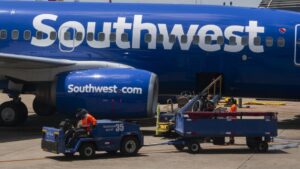Southwest Airlines to Introduce Baggage Fees: A Major Shift in Airline Strategy
In a surprising move that signifies a dramatic shift in its operational strategy, Southwest Airlines has announced plans to start charging customers for checked baggage for the first time since its inception over 50 years ago. This groundbreaking decision reflects the airline’s response to mounting pressures from investors and changing market dynamics, a topic not just relevant to airline enthusiasts but also to business investors and industry analysts at Extreme Investor Network.
What’s Changing for Travelers?
As of May 28, 2024, travelers booking tickets on Southwest Airlines will need to budget for baggage fees if they choose anything lower than the top-tier fare class. This move comes amidst broader changes aimed at increasing revenue streams as the airline adjusts to the post-pandemic landscape. However, elite frequent flyers—those with A-List Preferred status—will still enjoy the perk of checking two bags free of charge. Similarly, Southwest credit card holders retain the right to check one bag without incurring additional fees.
Southwest’s decision to implement these fees is noteworthy, particularly because the airline’s marketing has long emphasized the “two bags fly free” tagline. This was a pivotal selling point that set the airline apart from its competitors. However, as CEO Bob Jordan recently stated, "After fare and schedule, bags fly free is cited as the No. 1 issue in terms of why customers choose Southwest." This historical strategy seems to be taking a back seat to financial realities.
Pressure from Investors: A Game of Change
The airline’s strategic pivot comes as a direct result of pressures from activist investor Elliott Investment Management. Having acquired a significant stake in Southwest Airlines, Elliott’s influence on corporate governance is evident, leading to changes that the airline has resisted for decades. Executives have acknowledged that the decision to implement baggage fees stems from the need to capture revenue that has become critical in covering costs, especially as operational expenses have surged post-pandemic.
In a candid interview with CNBC, COO Andrew Watterson remarked, "What’s changed is that we’ve come to realize that we need more revenue to cover our costs." This acknowledgment marks a significant departure from the airline’s historical stance against such fees.
Additional Strategic Changes on the Horizon
Beyond baggage fees, Southwest Airlines has unveiled a suite of other changes that further signal a transformation in its operational model. The introduction of a new basic economy fare structure aligns it more closely with competitors who have used this pricing tier for years. Coupled with a revised Rapid Rewards program that ties frequent flyer mileage to ticket pricing and demand, the airline is prepared to navigate a more competitive landscape.
Flight credits for tickets purchased after May 28 will also face stricter expiration rules, expiring within a year or sooner, depending on fare types—an adjustment that could push travelers to book and fly more aggressively.
Larger Industry Implications
These developments at Southwest Airlines highlight a broader trend in the airline industry—a shift toward more traditional revenue streams like baggage fees and premium services as airlines grapple with increasing operational costs and variable consumer demand. While the changes might initially seem detrimental to customer loyalty, they are crucial for maintaining financial viability in a sector known for its razor-thin margins.
Moreover, with Southwest announcing significant job cuts, including about 15% of its corporate staff, the airline is clearly undertaking a hard look at its operational efficiency. As CEO Jordan stated, "We are at a pivotal moment as we transform Southwest Airlines into a leaner, faster, and more agile organization.” This statement resonates strongly with investors looking for companies that can adapt and survive in a challenging economic environment.
Conclusion: What Lies Ahead for Southwest and the Airline Industry
Southwest Airlines is at a crossroads that not only affects the company but could also set a precedent across the airline industry. For investors and industry insiders at Extreme Investor Network, monitoring how these changes will influence Southwest’s market position and overall profitability will be vital. As air travel continues to evolve, the decisions made by Southwest Airlines may offer insights into the future of budget travel and customer engagement strategies.
Stay tuned to Extreme Investor Network for up-to-date analyses and insights as we continue to track this story and its implications for investors in the travel industry.

